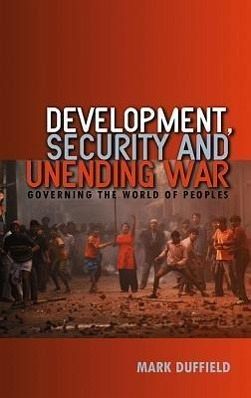
Development, Security and Unending War
Governing the World of Peoples
Versandkostenfrei!
Versandfertig in über 4 Wochen
30,99 €
inkl. MwSt.
Weitere Ausgaben:

PAYBACK Punkte
15 °P sammeln!
According to politicians, we now live in a radically interconnected world. Unless there is international stability - even in the most distant places - the West's way of life is threatened. In meeting this global danger, reducing poverty and developing the unstable regions of the world are now imperative. In what has become a truism of the post-Cold War period, security without development is questionable, while development without security is impossible. In this accessible and path-breaking book, Mark Duffield questions this conventional wisdom and lays bare development not as a way of betteri...
According to politicians, we now live in a radically interconnected world. Unless there is international stability - even in the most distant places - the West's way of life is threatened. In meeting this global danger, reducing poverty and developing the unstable regions of the world are now imperative. In what has become a truism of the post-Cold War period, security without development is questionable, while development without security is impossible. In this accessible and path-breaking book, Mark Duffield questions this conventional wisdom and lays bare development not as a way of bettering other people but of governing them. He offers a profound critique of the new wave of Western humanitarian and peace interventionism, arguing that rather than bridging the lifechance divide between development and underdevelopment, it maintains and polices it. As part of the defence of an insatiable mass consumer society, those living beyond its borders must be content with self-reliance. With case studies drawn from Mozambique, Ethiopia and Afghanistan, the book provides a critical and historically informed analysis of the NGO movement, humanitarian intervention, sustainable development, human security, coherence, fragile states, migration and the place of racism within development. It is a must-read for all students and scholars of development, humanitarian intervention and security studies as well as anyone concerned with our present predicament.




